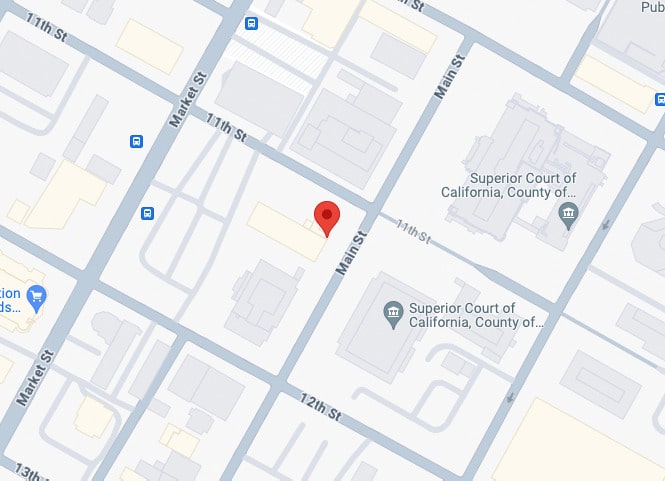If you find yourself facing charges related to fraud, we understand that you are likely experiencing a tumultuous and uncertain time. The complexities of the legal system, coupled with the potential consequences of fraud convictions, can be overwhelming.
The repercussions of a fraud conviction can be severe, including substantial fines, restitution, probation, or even imprisonment. Given the high stakes involved, it is crucial to hire an experienced criminal defense lawyer to help you mount a solid defense strategy.
Insurance Fraud
Insurance fraud occurs when an individual or entity intentionally deceives an insurance company for financial gain, either by making false claims or manipulating information to secure undeserved benefits. This form of fraud encompasses a wide range of schemes, including but not limited to auto insurance fraud, health insurance fraud, property insurance fraud, and workers' compensation fraud.
In California, insurance fraud poses a significant threat to the economy and the insurance marketplace, leading to skyrocketing premiums for policyholders, reduced coverage options, and increased scrutiny from insurance companies. As a result, law enforcement agencies, regulatory bodies, and insurance companies themselves have been relentless in their pursuit of identifying and prosecuting those involved in fraudulent activities.
Common insurance fraud schemes in California may involve staging accidents, inflating claims, billing for services not rendered, forging documents, or providing false information about pre-existing conditions. These deceptive practices carry serious legal consequences and can result in substantial fines, restitution, and imprisonment upon conviction. Upon conviction, the judge may order the defendant to serve an imprisonment term of up to ten years or pay a fine of up to $20,000 or twice the value of the defrauded amount, whichever is higher.
Prosecutors in California take insurance fraud cases seriously and are committed to enforcing stringent penalties as a deterrent measure. California has also established dedicated units, such as the California Department of Insurance Fraud Division, to investigate and prosecute insurance fraud cases. These specialized units collaborate with law enforcement agencies, insurance companies, and other stakeholders to identify and dismantle fraudulent schemes.
If you find yourself facing insurance fraud charges, securing competent legal representation is paramount to mounting a robust defense. An experienced attorney specializing in fraud crimes will possess the knowledge, skills, and resources necessary to navigate California's intricate legal landscape of insurance fraud cases. They will work diligently to challenge the prosecution's evidence, protect your rights, and strive for the best possible outcome for your case.
Real Estate and Mortgage Fraud
Real estate fraud involves deceptive practices aimed at unlawfully acquiring, transferring, or encumbering property for personal gain. These schemes can manifest in various forms, including fraudulent property sales, undisclosed liens, identity theft, fraudulent appraisals, and illegal property flipping. Real estate fraud not only harms unsuspecting buyers and sellers but also undermines the integrity and stability of the real estate market in California.
Mortgage fraud, closely intertwined with real estate fraud, focuses on fraudulent activities related to mortgage loans. It encompasses schemes such as loan application fraud, mortgage document forgery, inflated property appraisals, straw buyer schemes, and fraudulent loan modifications. These fraudulent practices not only affect individuals seeking loans but also compromise the integrity of financial institutions and mortgage lenders.
In California, the repercussions of real estate and mortgage fraud can be severe. Upon conviction, individuals involved in these fraudulent activities can face significant penalties, including imprisonment for a term not exceeding three years, substantial fines of up to $10,000, restitution, and the forfeiture of ill-gotten gains.
Recognizing the severity of these crimes, California has implemented stringent measures to combat real estate and mortgage fraud. Law enforcement agencies, regulatory bodies, and specialized units, such as the California Department of Real Estate and the Mortgage Fraud Task Force, work diligently to investigate and prosecute cases of fraud in the real estate and mortgage sectors.
Financial Fraud
Financial fraud encompasses a broad range of fraudulent activities, including securities fraud, investment fraud, bank fraud, accounting fraud, insider trading, and Ponzi schemes. It involves intentional misrepresentation, deceit, or manipulation to obtain financial gains or benefits at the expense of others. Perpetrators may employ various tactics, such as false statements, deceptive practices, forged documents, or unauthorized transactions, to perpetrate these fraudulent schemes.
In California, financial fraud is addressed by a combination of state and federal laws. The California Penal Code and the California Corporations Code contain provisions that specifically target fraudulent conduct in financial transactions. Additionally, federal laws, including the Securities Exchange Act, the Sarbanes-Oxley Act, and the Dodd-Frank Wall Street Reform and Consumer Protection Act, provide a framework for prosecuting financial fraud cases that impact interstate commerce or involve federally regulated entities.
The penalties for financial fraud can be severe. Upon conviction, you may face an imprisonment term of up to 20 years or be ordered to pay a fine of up to $1 million or twice the value of the defrauded amount, whichever is higher.
Prosecuting financial fraud cases in California requires demonstrating the elements of the specific offense, such as fraudulent intent, material misrepresentation, or a violation of specific regulations or disclosure requirements. To navigate the complexities of these charges, it is crucial to secure experienced legal representation from an attorney well-versed in California's financial fraud laws. A knowledgeable attorney can analyze the details of your case, challenge the prosecution's evidence, protect your rights, and build a strong defense strategy tailored to your circumstances.
In California, regulatory bodies like the California Department of Business Oversight and the California Attorney General's Office work alongside federal agencies, including the Securities and Exchange Commission (SEC) and the Federal Bureau of Investigation (FBI), to investigate and prosecute financial fraud cases. These agencies employ specialized units with expertise in financial crimes to ensure the financial system's integrity and protect the interests of investors and consumers.
Forgery and Identity Theft
Forgery and identity theft are two prevalent and interconnected forms of fraud that can have devastating consequences for individuals, businesses, and society as a whole. Forgery involves the intentional creation, alteration, or use of a false document or writing with the intent to deceive or defraud others. It can include forging signatures, counterfeit money, falsifying checks, altering legal documents, or fabricating contracts. In California, forgery is governed by various provisions of the California Penal Code, including sections 470-483.5, which address the specific elements and penalties associated with forgery offenses.
On the other hand, identity theft occurs when someone unlawfully obtains and uses another person's personal identifying information without their consent, typically for fraudulent purposes. This can involve stealing credit card information, social security numbers, bank account details, or other sensitive personal data. California law recognizes identity theft as a serious offense and addresses it through provisions such as Penal Code sections 530.5-530.7.
Under California law, both forgery and identity theft can result in criminal charges carrying severe penalties. A conviction of forgery and identity theft can result in a state prison sentence of up to three years and a fine of up to $10,000.
Prosecuting forgery and identity theft cases in California requires demonstrating the defendant's intent to deceive or defraud, the existence of a false or forged document, and the use of that document for fraudulent purposes. The prosecution must establish a nexus between the defendant's actions and the harm inflicted on the victim or victims. To build a strong defense against these charges, securing the services of an experienced attorney knowledgeable in forgery and identity theft laws in California is crucial.
California law enforcement agencies, including local police departments, the California Department of Justice, and the Federal Trade Commission, work together to investigate and prosecute cases of forgery and identity theft. Specialized units within these agencies, such as identity theft task forces, focus on combating these fraudulent activities and protecting the rights and interests of individuals and businesses.
If you find yourself facing charges related to forgery or identity theft in California, seeking competent legal representation is paramount. An attorney with expertise in fraud cases can assess the details of your situation, challenge the prosecution's evidence, protect your rights, and work toward a favorable resolution. They will guide you through the legal process, ensuring your defense strategy is tailored to your circumstances.
Internet Fraud
Internet fraud encompasses a wide range of deceptive practices conducted through online platforms, including websites, emails, social media, and mobile applications. Common forms of internet fraud include phishing scams, identity theft, online auction fraud, pyramid schemes, advance-fee fraud, and non-delivery of goods or services. Perpetrators exploit the anonymity and global reach of the internet to deceive unsuspecting victims for financial gain.
In California, internet fraud is prosecuted under various provisions of the California Penal Code and other relevant laws. These provisions address the specific elements and penalties associated with different types of internet fraud offenses, such as computer fraud, identity theft, unauthorized access to computer systems, or the use of false identities online.
The severity of the charges and potential consequences depend on factors such as the extent of the fraud, the monetary value involved, and the defendant's criminal history. A conviction of internet fraud can result in an imprisonment term of up to 20 years or a fine of up to $1 million or twice the value of the defrauded amount, whichever is higher.
Prosecuting internet fraud cases in California requires establishing that the defendant intentionally used the internet to engage in fraudulent activities. This may include demonstrating the use of false representations, deceptive practices, unauthorized access to computer systems, or the intent to defraud victims online. Building a strong defense against internet fraud charges requires the expertise of an attorney well-versed in cybercrime and fraud laws in California.
California law enforcement agencies, including local police departments, the California Department of Justice, and specialized cybercrime units, work diligently to investigate and prosecute cases of internet fraud. These agencies collaborate with federal law enforcement agencies to combat the ever-evolving nature of online fraud and protect the rights and interests of individuals and businesses.
Elder Fraud
Elder fraud refers to deceptive practices specifically aimed at defrauding and exploiting elderly individuals, taking advantage of their trust, vulnerability, and potentially diminished cognitive capacities. Perpetrators may employ various tactics, such as phone scams, email phishing, fraudulent investments, identity theft, caregiver fraud, or the misuse of power of attorney.
Elder fraud not only threatens the financial security of vulnerable individuals but also undermines their overall well-being and quality of life. In California, elder fraud is addressed through a combination of state laws and regulations designed to protect elderly individuals from exploitation.
The California Penal Code includes provisions such as Section 368, which specifically targets crimes against elderly and dependent adults, including financial abuse. Additionally, the California Welfare and Institutions Code outlines protections for elderly individuals and provides mechanisms for reporting and addressing cases of elder abuse.
The penalties and consequences of elder fraud vary depending on factors such as the nature and severity of the fraud, the financial losses incurred by the victim, and the defendant's criminal history. Convictions for elder fraud can result in an imprisonment term of up to ten years, a fine of up to $10,000, restitution, and the potential forfeiture of ill-gotten gains.
Prosecuting elder fraud cases in California requires demonstrating that the defendant intentionally targeted and exploited an elderly individual for financial gain. The prosecution must establish the defendant's fraudulent intent, the existence of deceptive practices or misrepresentations, and the impact of the fraud on the victim. To build a strong defense against elder fraud charges, it is crucial to secure the services of an experienced attorney knowledgeable in elder law and fraud cases in California.
In California, law enforcement agencies, including local police departments, district attorneys' offices, and adult protective services, are dedicated to investigating and prosecuting elder fraud cases. These agencies collaborate with other stakeholders, such as elder advocacy organizations and social services, to protect the rights and well-being of elderly individuals.
Gambling Fraud
In California, gambling fraud is generally addressed under California Penal Code Section 332. To successfully prosecute a gambling fraud case in California, the prosecutor must generally prove the following elements:
- Intent — The prosecutor must establish that the defendant knowingly and intentionally engaged in fraudulent activities in relation to gambling or gaming.
- Deceptive practices — The prosecution must demonstrate that the defendant employed deceptive practices, such as false representations, misrepresentations, or the manipulation of gaming devices, to defraud others.
- Financial harm — The prosecutor must show that the fraudulent activities resulted in financial loss or harm to individuals or entities involved in the gambling or gaming industry.
Gambling fraud can encompass various forms, including but not limited to rigged or manipulated games, cheating at card games or casino games, tampering with gaming devices, false claims of winning, or collusion among players to deceive others. Gambling fraud is categorized as a wobbler. This means it can be charged as a misdemeanor or felony, depending on the circumstances.
You will be charged with gambling fraud as a misdemeanor if the value of the defrauded amount is below $950. As a misdemeanor, gambling fraud attracts a county jail term of up to one year upon conviction.
You may face charges for felony gambling fraud if the value of the defrauded amount is over $950. The punishment for felony gambling fraud is a state prison term of up to three years.
Telemarketing Fraud
Telemarketing fraud involves exploiting telephone communication to defraud unsuspecting individuals. California Business and Professions Code 17511.9 prohibits the use of a telephone to sell a product or service using fraudulent or deceitful means.
To successfully prosecute a telemarketing fraud case, the prosecutor must generally prove the following elements:
- Intent — The prosecutor must establish that the defendant knowingly and intentionally engaged in fraudulent activities through telemarketing.
- Deceptive practices — The prosecution must demonstrate that the defendant employed deceptive practices, such as false representations, misrepresentations, or the omission of important information, to defraud or deceive others.
- Financial harm — The prosecutor needs to show that the fraudulent activities conducted through telemarketing resulted in financial loss or harm to the victims.
Telemarketing fraud can take various forms, including but not limited to fake investment schemes, prize or sweepstakes scams, charity scams, fraudulent product sales, or identity theft schemes conducted over the phone. The penalties for telemarketing fraud convictions depend on the extent of the fraudulent activities and the defendant's criminal history.
Telemarketing fraud is a wobbler. As a misdemeanor, it attracts a county jail term of up to one year upon conviction. The punishment for felony telemarketing fraud is an imprisonment term of a maximum of three years. Additionally, the judge may order the defendant to restitute the victim or forfeit any ill-gotten gains obtained through telemarketing fraud.
Find a Temecula Bail Bonds Agent Near Me
When you or your loved one has been arrested for any of the fraud crimes discussed in this article and is seeking release from custody in Temecula, turn to Justice Bail Bonds for swift and reliable bail bond services. With our expertise in the bail bonds industry and our commitment to exceptional customer service, we will work tirelessly to secure you or your loved one’s release from jail as quickly as possible.
We offer personalized solutions to meet your specific needs, ensuring a smooth and stress-free experience. Call us at 714-541-1155 for prompt, reliable, and confidential bail bond services. We are available 24/7, ready to assist you when you need it the most.










